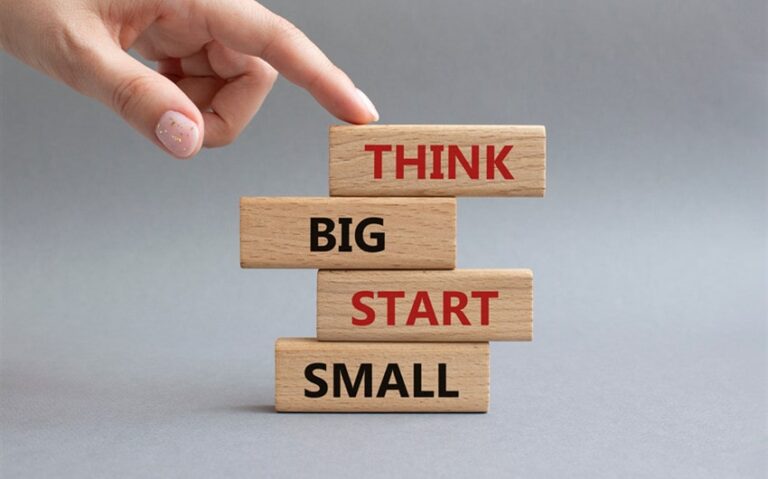When You Finally Learn to Trust Your Own Timing
There comes a point in life when you look around and wonder if you’re behind. Everyone seems to be moving faster—new jobs, new homes, new relationships, new milestones posted for the world to see. Meanwhile, you’re standing still, quietly wondering when it’ll be your turn.
For a long time, I thought “being on time” meant keeping up with everyone else. I rushed decisions, compared my progress, and treated life like a checklist that had to be completed in a certain order. But over time, something shifted. I started to see that there is no universal timeline—there’s only the one that belongs to you.
When you finally learn to trust your own timing, life begins to breathe again. You stop forcing things to happen and start noticing how naturally they unfold. You stop asking “why not yet?” and start saying “maybe not yet—because something better is forming.”
Trusting your timing doesn’t mean giving up on goals or growth; it means surrendering to the idea that your path unfolds at the pace it’s meant to.
The Myth of Being Late
We grow up believing that life runs on a schedule. Graduate by this age, build a career by that age, find love, buy a home, start a family—check, check, check. It’s a rhythm so familiar that when we fall out of sync with it, we start to question our worth.
But the truth is, these timelines are made up. They’re collective expectations passed down through culture, family, and society—not rules written for you personally. Life doesn’t hand out clocks; we’re the ones who carry them.
I used to think I was “late” because my story didn’t look like everyone else’s. Friends were climbing ladders I didn’t even want to be on, and yet, I felt behind. I mistook someone else’s timing for proof that mine was wrong.
But life isn’t a race—it’s a rhythm. And sometimes the most meaningful things take time to grow. Flowers don’t rush to bloom; rivers don’t hurry to reach the sea. The best things in life unfold slowly, deliberately, with purpose.
When you let go of the idea that you’re behind, you make space to see where you actually are—and often, it’s further along than you realize.
Lesson One: Comparison Steals Clarity
Comparison is one of the biggest reasons we stop trusting ourselves. It creeps in quietly—scrolling through social media, hearing someone else’s success story, or revisiting a dream that hasn’t happened yet. Suddenly, your pace feels inadequate.
But here’s the truth: when you’re focused on someone else’s path, you lose sight of your own.
Each of us is walking a unique route shaped by timing, choices, and unseen preparation. Just because your moment hasn’t arrived yet doesn’t mean it never will. The waiting might actually be doing the work of shaping you into the person who can handle what you’re asking for.
If you ever feel lost in comparison, pause and ask yourself: Would I even want their life exactly as it is? Often, the answer is no. You’re drawn to the highlight, not the process that got them there.
Instead of comparison, try curiosity. Be curious about your own pace. Notice the lessons that your season is teaching you. Progress doesn’t always look like forward motion—sometimes it’s quiet, internal, invisible growth.
The moment you stop comparing timelines, clarity returns. You see where you are, what matters, and how far you’ve already come.
Lesson Two: Delay Doesn’t Mean Denial
We tend to think delay means failure—that if something takes longer than expected, we’ve done something wrong. But sometimes delay is life’s way of saying not yet because not yet is better than not at all.
Some seasons are meant for preparation, not performance. They teach patience, resilience, and trust in ways that success never could.
I think about a time when I wanted something badly—a new direction, a breakthrough, a clear sign that I was on the right path. But nothing seemed to move. I pushed, planned, overanalyzed, and still, nothing clicked. It was frustrating. Only later did I realize that I wasn’t ready for what I was asking for. I needed that quiet in-between season to grow into the person who could carry it with confidence.
Delay doesn’t mean your dream disappeared; it means it’s still maturing, and so are you.
When things don’t happen on your timeline, it’s not a dead end—it’s often redirection. Something unseen might be rearranging on your behalf.
The waiting can be sacred space if you let it. It’s where your roots deepen. It’s where faith grows stronger than fear.
Lesson Three: Presence Builds Trust
When you stop rushing to the next thing, you start noticing the beauty in the current one.
Trusting your timing requires presence—being fully where you are instead of wishing yourself somewhere else.
It’s easy to believe that happiness lives in the next season: after the promotion, after the relationship, after the change. But life doesn’t begin later—it’s happening right now, in the middle of everything you’re trying to rush through.
Presence reminds you that even if you don’t have it all figured out, you’re still living. You’re still learning. You’re still becoming.
Trust builds each time you witness how things have worked out before. Think about the moments that didn’t go according to plan, yet somehow led you exactly where you needed to be. Those weren’t coincidences—they were proof that life has its own intelligence, its own timing that unfolds perfectly when we allow it to.
When you learn to trust that, you stop trying to force outcomes. You start creating from peace instead of panic.
Being present turns impatience into appreciation.
Lesson Four: Letting Go of the Clock
Trusting your timing also means unlearning urgency. The world tells us to move faster, do more, chase the next milestone. But peace doesn’t live on a schedule—it lives in stillness.
When you let go of the clock, you let go of pressure. You make room for flow.
You begin to notice that things come easier when you’re not chasing them. Opportunities arrive without force. The right people enter your life when you stop trying to control every outcome.
Life starts to feel less like a race and more like a conversation—something you’re part of, not something you have to win.
If you can learn to rest inside the uncertainty, you’ll see that timing isn’t about lateness or speed—it’s about alignment. The right thing at the wrong time can still fall apart. But the right thing at the right time? It doesn’t need to be chased. It finds you when you’re ready.
Lesson Five: Peace Over Pace
When you finally learn to trust your timing, peace replaces pressure. You no longer wake up feeling behind. You stop measuring your worth by how much you’ve achieved and start valuing how far you’ve grown.
Peace doesn’t come from finishing first—it comes from knowing you’re exactly where you’re meant to be.
You’ll start to see that the “slow seasons” aren’t wasted time; they’re the foundation for everything that comes next. The quiet chapters hold the wisdom that fuels the louder ones.
Trusting your timing is an act of self-compassion. It’s giving yourself permission to live your story without apology.
And when you finally make peace with your pace, you realize there was never anything to catch up to—because your life has been right on time all along.
Closing Thoughts
We spend so much of life trying to prove we’re not behind that we forget there’s no universal clock keeping score. Life moves differently for each of us, and that difference is what makes it beautiful.
Trust your detours. Trust your pauses. Trust the moments that feel still—they’re often the ones quietly building your next chapter.
When you finally learn to trust your own timing, the noise fades. You start hearing your own rhythm again—the one that’s been there all along, waiting for you to listen.





